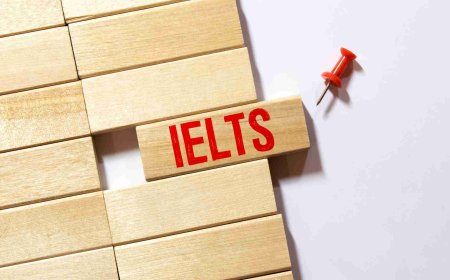French Language Boom: Your Ticket to Canadian Immigration in 2024
French language proficiency will take center stage in category-based selection Express Entry draws in 2024, as revealed by a recent Access to Information Request (ATIP).

The ATIP, disclosed to CICNews by Carry Immigration, outlines that Immigration, Refugees, and Citizenship Canada (IRCC) will issue 78.5% of all Invitations to Apply (ITAs) to Express Entry candidates in category-based selection draws, with the remaining 21.5% issued in general draws.
Among these, candidates proficient in French will receive 30% of ITAs, followed by STEM occupations at 25% and healthcare at 15%.
Here's the breakdown of ITAs by category:
- French proficiency: 30%
- Healthcare occupations: 15%
- STEM occupations: 25%
- Trade occupations: 5%
- Transport occupations: 3%
- Agriculture and agri-food occupations: 0.5%
Category-based selection draws were introduced in May 2023 to target Express Entry candidates with sought-after attributes such as work experience and language skills.
Why is French proficiency prioritized? In an ATIP from April 2023, French proficiency was highlighted due to a report by the Labour Market Information Council in 2021, which stated that Canadian employers faced challenges in finding skilled bilingual workers. Additionally, it found that French-speaking economic principal applicants had higher employment rates.
This was supported by a Statistics Canada study released in January, which found that language proficiency was the primary factor in economic immigration candidates' success in the Canadian labor force.
IRCC also emphasized the importance of bilingualism for public services in Canada, as all citizens have the right to access services in either English or French.
When the category was proposed, IRCC estimated that 11% to 15% of candidates invited through category-based selection would be French-speaking. However, French proficiency draws have invited the highest number of candidates to date, with 17,300 ITAs since July 2023.
This move helped IRCC meet its target of 4.4% of all francophone newcomers settling outside of Quebec in 2023, and Immigration Minister Marc Miller announced in January that this would rise to 6% in 2024.
However, support for this category was mixed, with 54% of stakeholders supporting it while 42% felt it would have no impact or were unsure. The lowest support came from stakeholders in Alberta and British Columbia, who doubted the economic impact outside of Francophone minority communities.
Supporters of the category pointed out the need for bilingualism in various sectors like healthcare, tourism, hospitality, and education, along with the non-economic benefits of removing barriers for French-speaking minorities.
When and how large will the draws be? IRCC has developed a schedule for Express Entry draws in 2024, aiming to provide predictability to provinces, territories, and clients. This marks the first indication of scheduled draws this year, unlike the unpredictable frequency in 2023.
So far in 2024, IRCC has conducted one general draw and at least one category-based draw every two weeks, with occasional weeks having three draws. The size of draws will depend on admissions targets outlined in the current Immigration Levels Plan, with a target of 110,770 new permanent residents in 2024 and 117,500 in 2025.
Impact on CRS scores The 2024 ATIP notes that the composition of the Express Entry pool and CRS scores will influence the minimum CRS cut-off scores for draws. IRCC expected a drop of approximately 10% in the total average CRS score following the introduction of category-based selection rounds in 2023. While this might enhance source country and occupational diversity, it could negatively impact newcomers' economic outcomes, as higher CRS scores are linked with stronger economic outcomes.
Recent draws have shown higher minimum scores for general draws, with none lower than 524. In contrast, category-based selection draws have seen much lower scores, such as 336 for a French-language proficiency draw on February 29.
What's Your Reaction?
 Like
0
Like
0
 Dislike
0
Dislike
0
 Love
0
Love
0
 Funny
0
Funny
0
 Angry
0
Angry
0
 Sad
0
Sad
0
 Wow
0
Wow
0






































































